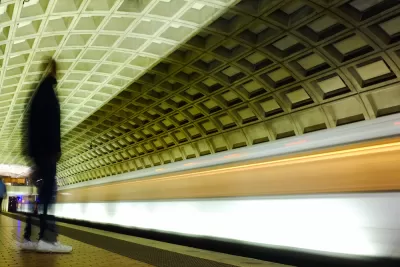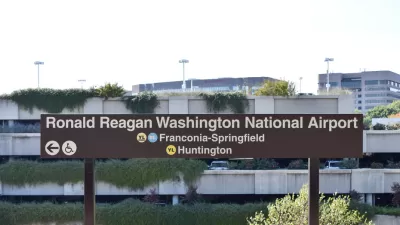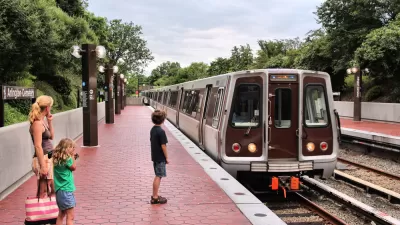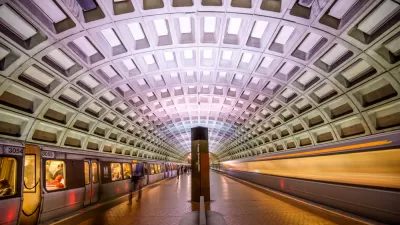Greater Greater Washington's "Metro Reasons" column analyses the latest ridership data from the D.C. Metro system. Riders have not returned to the system after the SafeTrack repair program concluded in 2017.

The Washington Metropolitan Area Transit Authority (Metro) released new financial data this week that sheds light on the ongoing decline of ridership on the transit system's buses and trains.
Stephen Repetski reports on the latest data, finding plenty to be concerned about. The dominant narrative, however, is that riders are not returning to the system now that the SafeTrack repair program has concluded:
Through the third quarter of FY 2018 (July 2017 through March 2018), the average number of weekday trips taken on Metrorail was 598,000, according to the agency — a 0.1% increase from last year during which SafeTrack shuttered portions of the rail system, but 2.1% below what Metro budgeted. Average weekday ridership in May 2017 was 612,000 while May 2016’s numbers were 639,000.
Repetski also focuses on the ridership numbers on the system's bus routes, also in decline, neatly following a fare increase at the beginning of the 2018 fiscal year. Metro bus ridership declined in larger numbers in Virginia.
FULL STORY: Metro Reasons: Metro’s bus and rail ridership has taken a dive

Alabama: Trump Terminates Settlements for Black Communities Harmed By Raw Sewage
Trump deemed the landmark civil rights agreement “illegal DEI and environmental justice policy.”

Study: Maui’s Plan to Convert Vacation Rentals to Long-Term Housing Could Cause Nearly $1 Billion Economic Loss
The plan would reduce visitor accommodation by 25% resulting in 1,900 jobs lost.

Planetizen Federal Action Tracker
A weekly monitor of how Trump’s orders and actions are impacting planners and planning in America.

Wind Energy on the Rise Despite Federal Policy Reversal
The Trump administration is revoking federal support for renewable energy, but demand for new projects continues unabated.

Passengers Flock to Caltrain After Electrification
The new electric trains are running faster and more reliably, leading to strong ridership growth on the Bay Area rail system.

Texas Churches Rally Behind ‘Yes in God’s Back Yard’ Legislation
Religious leaders want the state to reduce zoning regulations to streamline leasing church-owned land to housing developers.
Urban Design for Planners 1: Software Tools
This six-course series explores essential urban design concepts using open source software and equips planners with the tools they need to participate fully in the urban design process.
Planning for Universal Design
Learn the tools for implementing Universal Design in planning regulations.
Caltrans
Smith Gee Studio
Institute for Housing and Urban Development Studies (IHS)
City of Grandview
Harvard GSD Executive Education
Toledo-Lucas County Plan Commissions
Salt Lake City
NYU Wagner Graduate School of Public Service





























